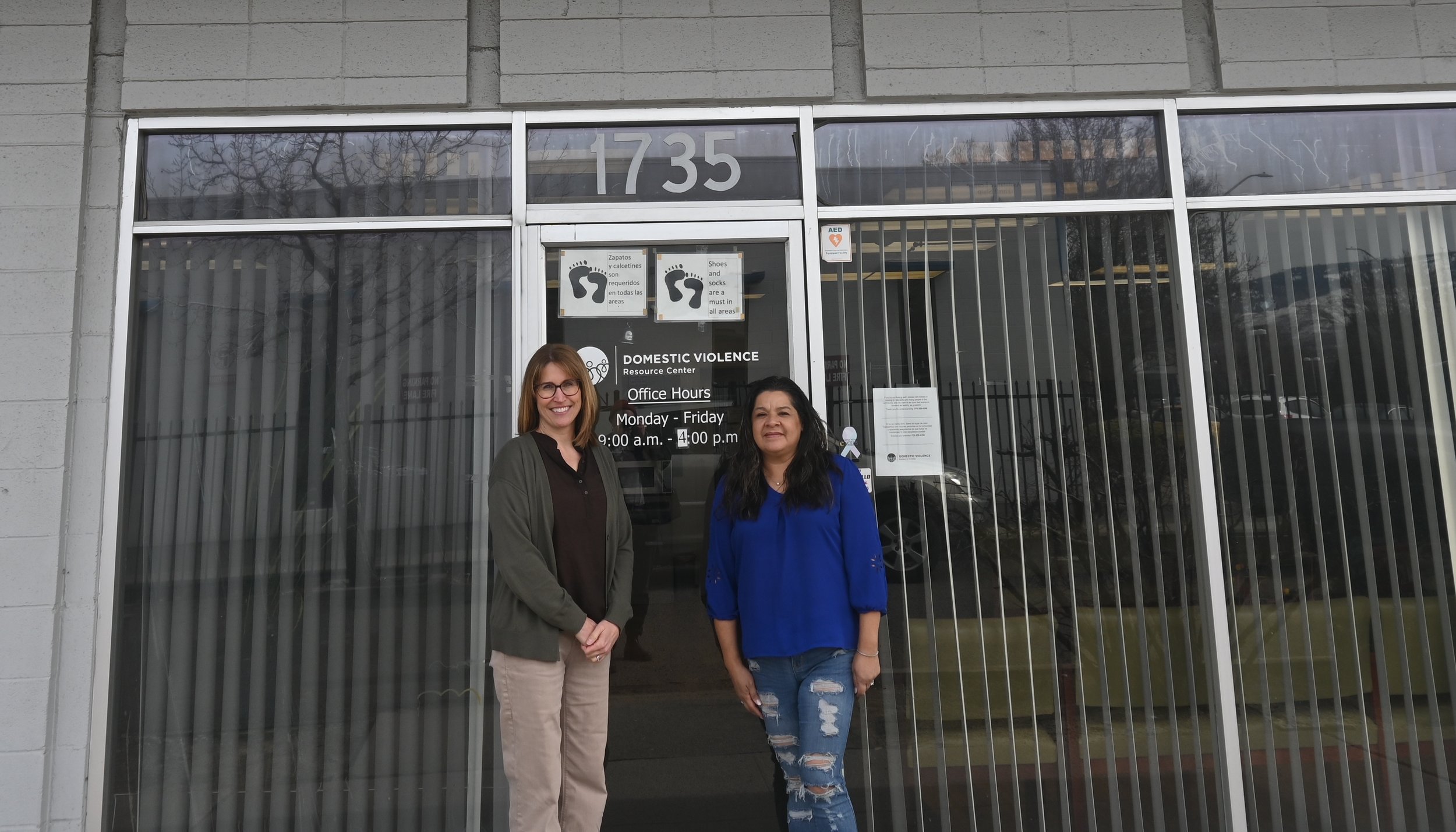Across parts of downtown Reno, many motels have been leveled to rubble, folks are still sleeping on cold concrete, the roads and bike lanes could use some love, and billboards advertise homes that barely anyone can afford.
There are less visible problems too. According to the National Coalition against Domestic Violence, “43.8% of Nevada women and 32.8% of Nevada men experience intimate partner physical violence, intimate partner sexual violence and/or intimate partner stalking in their lifetimes.”
These numbers place Nevada as the state with the second highest percentage of people who experience domestic violence, and that’s only what’s been reported. Reporting and seeking help while in a domestic violence situation is extremely difficult for many, especially those with children.
It’s a relief, then, to know that the Domestic Violence Resource Center exists in Reno. Not only do they exist; they are ready to receive anyone with open arms. Unassuming from the outside, the center is filled with colorful murals on the walls, a library collection, plenty of kids toys, and a whole room filled to the brim with diapers.
The resource center does not require survivors to identify themselves. In fact, they have a food bank and a free “thrift store” (full of gently used clothes and household items) that are both accessible resources to anyone in need, abuse survivor or not.
Sylvia Gonzalez, the director of client services, has worked at the resource center for twenty years. She first worked with domestic violence survivors in Fresno. After coming to Reno and working as an apartment manager for a while, she realized that she “missed the call,” and found herself first volunteering, then working at the resource center.
Kristin Kennedy works alongside Gonzalez as the executive director. For the past year and a half, she’s guided the organization through conquering big obstacles– and there are still plenty of challenges to go around.
“If you look at other cities our size in western United States, and you compare the number of domestic violence shelter beds, we should have seventy five (beds),” explains Kennedy. “We currently have, in operation in Reno/Sparks, thirty five.”
Some issues are deeply intertwined within standard operating procedures. Too often, the burden of proof is put on victims of domestic violence. “A restraining order is not a shield,” says Gonzalez. “It's just a piece of paper. Here is a victim that's trusting the legal system, and they call the police. And the police say, ‘sorry. I can't do anything about it.’ That victim is not going to call the police a second time or a third time. So what's gonna happen to her? Or to her kids?”
Last year in Reno, data from the center indicates at least three victims of domestic violence were killed by their intimate partner.
“We live in this really great, unique, vibrant city,” Kennedy says, “but we also are experiencing a lot of the same economic stresses that you see in the West, with lack of affordable housing and high inflation rates.”
The high cost of living in Reno makes it especially difficult for some to leave abusive situations. “It's really hard, especially if they have no family support or friends to assist them,” says Gonzalez. “Where can they go? So it's like a revolving door, you know- ‘I'll just go back.’ And that's what we don't want. We want to have the resources for them to be able to stay away from those situations.”
The center has found tremendous support through partnering with the Katie Grace Foundation, which donates brand new clothes, toys, and other household goods. This foundation also set up a children’s boutique at Our Place last year. The center has also started working with UNR, offering an option for graduate students to fulfill clinic hours by counseling clients.
Gonzalez, Kennedy, and everyone else at the center are invested in seeing each survivor through to the light at the end of the tunnel. Services address the needs of their clients– from housing, to legal aid, to mental health help and financial coaching.
It’s the little things that help clients break downward cycles – like being able to finance a laptop with no interest rate, or attending support groups with other survivors. There’s a long road ahead when it comes to reaching all domestic violence survivors. But there have already been many stories of triumph.
Gonzalez remembers a story about a client who decided to seek help, after many years of living with a violent partner. The resource center set her up in their confidential emergency shelter for ninety days. After those three months, the client was able to move to transitional housing– also confidential, and provided through the center.
“(The client) told us that the first time she had to go pump gas in her car, she cried,” Gonzalez recalls. “She cried because she had never done that. It was always her partner that did it for her.” The experience helped that client realize that she could do things on her own. And two years ago, that same client bought a house.
If you, or someone you know, could use any of the resources or services at the center, Gonzalez and Kennedy welcome you to come on through. “You can come in person, no appointment needed,” encourages Gonzalez. “You can call us over the phone 24 hours a day, seven days a week. You can even text us.”



